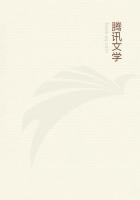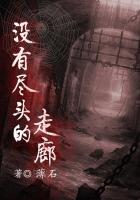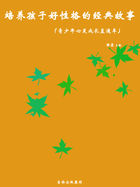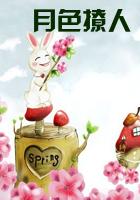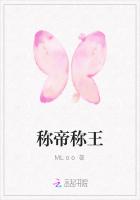Considerable uncertainty remains with regard to the dates of the poems belonging to this seemingly, in all respects but one, fortunate period of Chaucer's life. Of one of these works, however, which has had the curious fate to be dated and re-dated by a succession of happy conjectures, the last and happiest of all may be held to have definitively fixed the occasion. This is the charming poem called the "Assembly of Fowls," or "Parliament of Birds"--a production which seems so English, so fresh from nature's own inspiration, so instinct with the gaiety of Chaucer's own heart, that one is apt to overlook in it the undeniable vestiges of foreign influences, both French and Italian. At its close the poet confesses that he is always reading, and therefore hopes that he may at last read something "so to fare the better." But with all this evidence of study the "Assembly of Fowls" is chiefly interesting as showing how Chaucer had now begun to select as well as to assimilate his loans; how, while he was still moving along well-known tracks, his eyes were joyously glancing to the right and the left; and how the source of most of his imagery at all events he already found in the merry England around him, even as he had chosen for his subject one of real national interest.
Anne of Bohemia, daughter of the great Emperor Charles IV, and sister of King Wenceslas, had been successively betrothed to a Bavarian prince and to a Margrave of Meissen, before--after negotiations which, according to Froissart, lasted a year--her hand was given to the young King Richard IIof England. This sufficiently explains the general scope of the "Assembly of Fowls," an allegorical poem written on or about St. Valentine's Day, 1381--eleven months or nearly a year after which date the marriage took place. On the morning sacred to lovers the poet (in a dream, of course, and this time conducted by the arch-dreamer Scipio in person) enters a garden containing in it the temple of the god of Love, and filled with inhabitants mythological and allegorical. Here he sees the noble goddess Nature, seated upon a hill of flowers, and around her "all the fowls that be," assembled as by time honoured custom on St. Valentine's Day, "when every fowl comes there to choose her mate." Their huge noise and hubbub is reduced to order by Nature, who assigns to each fowl its proper place--the birds of prey highest; then those that eat according to natural inclination----worm or thing of which I tell no tale;
then those that live by seed; and the various members of the several classes are indicated with amusing vivacity and point, from the royal eagle "that with his sharp look pierceth the sun," and "other eagles of a lower kind" downwards. We can only find room for a portion of the company:--The sparrow, Venus' son; the nightingale That clepeth forth the fresh leaves new;The swallow, murd'rer of the bees small, That honey make of flowers fresh of hue;The wedded turtle, with his hearte true;
The peacock, with his angels' feathers bright, The pheasant, scorner of the cock by night.
The waker goose, the cuckoo, ever unkind;
The popinjay, full of delicacy;
The drake, destroyer of his owne kind;
The stork, avenger of adultery;
The cormorant, hot and full of gluttony The crows and ravens with their voice of care;And the throstle old, and the frosty fieldfare.
Naturalists must be left to explain some of these epithets and designations, not all of which rest on allusions as easily understood as that recalling the goose's exploit on the Capitol; but the vivacity of the whole description speaks for itself. One is reminded of Aristophanes'
feathered chorus; but birds are naturally the delight of poets, and were befriended by Dante himself.
Hereupon the action of the poem opens. A female eagle is wooed by three suitors--all eagles; but among them the first, or royal eagle, discourses in the manner most likely to conciliate favour. Before the answer is given, a pause furnishes an opportunity to the other fowls for delighting in the sound of their own voices, Dame Nature proposing that each class of birds shall, through the beak of its representative "agitator," express its opinion on the problem before the assembly. There is much humour in the readiness of the goose to rush in with a ready-made resolution, and in the smart reproof administered by the sparrow-hawk amidst the uproar of "the gentle fowls all." At last Nature silences the tumult, and the lady-eagle delivers her answer, to the effect that she cannot make up her mind for a year to come; but inasmuch as Nature has advised her to choose the royal eagle, his is clearly the most favourable prospect. Whereupon, after certain fowls had sung a roundel, "as was always the usance," the assembly, like some human Parliaments, breaks up with shouting;(Than all the birdis song with sic a schout That I annone awoik quhair that I lay Dunbar, "The Thrissil and the Rois.")and the dreamer awakes to resume his reading.
Very possibly the "Assembly of Fowls" was at no great interval of time either followed or preceded by two poems of far inferior interest--the "Complaint of Mars" (apparently afterwards amalgamated with that of "Venus"), which is supposed to be sung by a bird on St. Valentine's morning, and the fragment of "Queen Anelida and false Arcite." There are, however, reasons which make a less early date probable in the case of the latter production, the history of the origin and purpose of which can hardly be said as yet to be removed out of the region of mere speculation.

